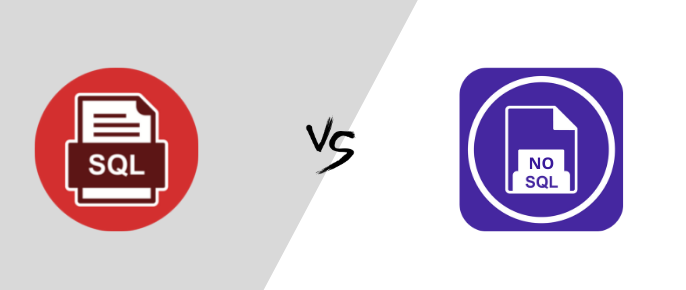In the previous article, I have mentioned SQL Comments (Comment in SQL Query) and SQL Server Management Studio (SSMS) Versions now in this article, I have mentioned what is difference between SQL and NoSQL or you can say provided detailed insights of rdbms vs nosql (sql and nosql difference).
Whenever we are creating applications as a developer, we need to choose a technology stack to create web, desktop or mobile applications and without saving our data in the database we cannot have proper dynamic applications.
So, nowadays, we can have two types of databases, SQL (relational database) and NoSQL (non-relational database) databases, these words can be confusing for those who are hearing NoSQL database for the first time.
Before we deep dive into the details, here are the main difference between SQL and NoSQL.

| SQL | NoSQL | |
|---|---|---|
| Database Type | These are relational databases with table/rows | Non-Relational database |
| Data Structure/Models | Structured data Contains tables/columns | Have dynamic schemas for unstructured data. |
| Scalability | Vertically scalable | Horizontally scalable |
| Data Storage | Table-based | Document, key-value, graph, or wide-column stores |
| Performance | Needs larger database server for better performance which can be cost-effective | Instead of purchasing larger servers with more memory, NoSQL databases can scale horizontally, meaning you can add new servers to what you already have as needed. |
| Ease of use |
SQL databases tend to be best for complex queries. | NoSQL databases tend to be the best option for when you’re using unstructured data. |
| Examples |
Oracle, MySQL, Microsoft SQL Server, and PostgreSQL | Document: MongoDB and CouchDB, Key-value: Redis and DynamoDB, Wide-column: Cassandra and HBase, Graph: Neo4j and Amazon Neptune |
ok, so you have seen the comparison table of SQL and NoSQL above, now you might be thinking when to use which one? let's understand this
When to use SQL instead of NoSQL
- When you want to work on Complex queries since SQL uses structured data and relational data and it is easier to query and retrieve, presents your data.
- SQL databases are a better fit for heavy-duty or complex transactions because it’s more stable and ensure data integrity.
- When you want to ensure ACID (Atomicity, Consistency, Isolation, Durability) compliance
- If you are not working on lots of data or projects which may not have large volumes of data then it is better to use SQL, it can increase the load on the Server which will, in turn, require a better RAM, CPU-based server and hence requires more cost for the project.
When to use NoSQL instead of SQL
- When it is difficult to predict how the application will grow and it may have a large volume of data later, since more traffic can be handles easily using a NoSQL database
- You are not concerned about data consistency and 100% data integrity is not your top goal.
- Your data needs to scale up, out, and down, as NoSQL provides much greater flexibility.
- Storing large volumes of data that often have little to no structure. A NoSQL database sets no limits on the types of data you can store together and allows you to add different new types as your needs change. With document-based databases, you can store data in one place without defining the "types" of data in advance.
- Making the most of cloud computing and storage, since NoSQL databases like Cassandra are designed to be scaled across multiple data centers out of the box without a lot of headaches.
- Rapid development, if you want to finish a project within 2-3 weeks then it is better to use NoSQL as NoSQL data doesn’t require preparation ahead of time.
Which is faster, SQL or NoSQL?
We cannot answer this based on the database type, it all depends on how you are using the database, it means that speed as a factor for SQL and NoSQL databases depends on the context.
SQL databases are normalized databases where the data is broken down into various logical tables to avoid data redundancy and data duplication, so SQL database is faster for joins, queries, and updates.
On the other hand, NoSQL databases are specifically designed for unstructured data which can be document-oriented, column-oriented, graph-based etc, so read or write operations on a single data entity is faster for NoSQL databases than SQL.
You may also like to read:
What is database management system and it's types
How to Create database in sql server management studio (Create table and Insert data)
Validate Email address in SQL Server
Aggregate Functions in SQL Server (SUM, AVG, COUNT, MIN, MAX)
Free SQL Server Reporting Tools
Best Free SQL Server database hosting
